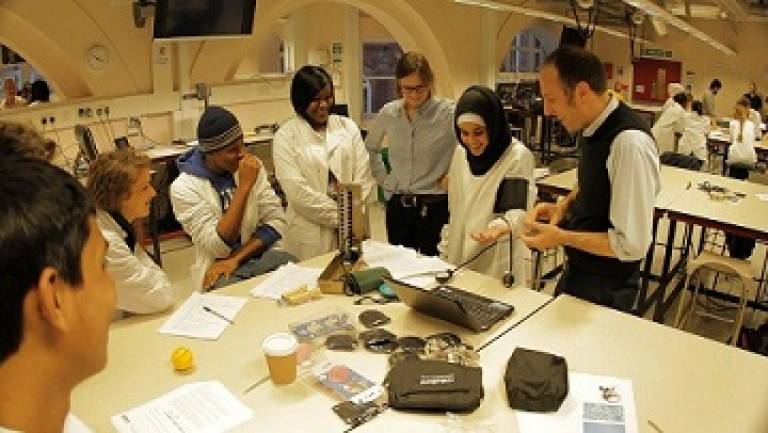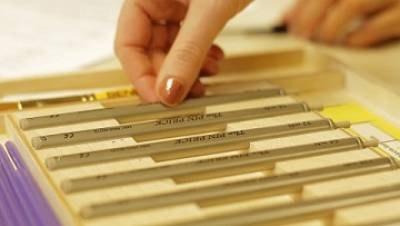Researchers engage students at Wellcome Trust 75th anniversary workshop
21 November 2011
Last week, researchers from the London Pain Consortium (LPC), including a number of scientists from UCL's Department of Neuroscience, Physiology & Pharmacology, ran a workshop in which local Camden high-school students could explore the biology of pain and touch through a series of practical experiments and interactive activities.

The workshop was part of Wellcome Trust 75th Anniversary events, and was organised by LPC members, Professors Tony Dickenson (UCL), Steve McMahon and Dr Dave Bennett (King's College London (KCL)), with help from post-doctoral and postgraduate students from UCL, KCL and Oxford. The London Pain Consortium (LPC) is a joint UCL, KCL, Imperial and Oxford grouping, funded by a Wellcome Trust Strategic Award, whose mission is to better understand pain mechanisms and its control.
About 40 sixth-form students spent the afternoon learning about how the brain senses the outside world through a series of short rotations exploring sensory testing and responses.
Professor Dickenson said: "The students were highly interactive and enthused and it was difficult to get them to leave at the end of the session."

Dr Shafaq Sikandar, a research associate from the Neuropharmacology of Pain Group, ran three of the practical experiments with colleagues Matt Thakur, Jessica O'Neill and Irene Ronga.
Commenting on the day, Dr Sikandar said: "The 75th anniversary workshop was a great opportunity to interact with a keen younger community and for students to learn about the biology behind touch and pain. Students rotated among works stations in groups, and in our corner they got the chance to be 'lasered' with radiant heat at different intensities ranging from a mild burning to a sharp pin prick. By discriminating between different qualities and timings of sensation of the heat stimuli on their hands, the students were able to experience different types of pain and understand some of the biological mechanisms behind it. "
She added: "Many students were inquisitive about the science behind the experiments, but some also expressed interest in science-related degrees and even pursuing scientific careers. There was a real sense of appreciation from those students to be able to take part in this event and experience science more professionally than in a classroom environment. Overall it was a great experience to participate in, especially as some of the students seemed very enthusiastic and enjoyed trying out the different equipment, but hopefully it was also equally rewarding for the students to learn about research processes and science in a fun way."
Images: David Chavannes
Links:
 Close
Close

